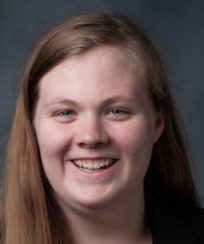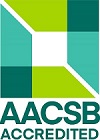 A University of Arkansas at Little Rock student has placed second in a national legal writing competition for her paper that explores the increasing complications of taxing professional athletes during the pandemic.
A University of Arkansas at Little Rock student has placed second in a national legal writing competition for her paper that explores the increasing complications of taxing professional athletes during the pandemic.
Aleigha Smith, a senior accounting major and Donaghey Scholar from Cabot, received the second place award in legal writing from the Academy of Legal Studies in Business. Dr. Casey Carder Rockwell, assistant professor of marketing and advertising, mentored Smith.
“There exists a myriad of complications in the form of taxes beyond the standard federal and state,” Smith said. “These taxes, called jock taxes, have been exacerbated by the COVID-19 pandemic as the rules and regulations on how the income is taxed have evolved.”
In the United States, the jock tax is an income tax levied against visitors to a city or state who earn money in that jurisdiction. Professional athletes are the targets of the jock tax, which requires them to pay income taxes outside of the states they live in for the time they work in other cities and states. The jock tax can force some professional athletes to file income taxes in as many as 15-20 states per year.
The COVID-19 pandemic brought a great upheaval to professional sports. When professional sports teams began to cancel events and stay home, states and cities lost the ability to earn income by taxing visiting players. In her paper, “What’s Up Jock?: Redefining Duty Days for Professional Athletes in the Wake of COVID-19,” Smith argued that the jock tax is even more cumbersome to professional athletes during the pandemic and should be simplified.
“The jock tax helps pay for stadiums where professional athletes play, security, and extra police work during professional events,” Smith said. “The job of a professional athlete is much more than just playing games. It’s practices, spring training, workouts, and other publicity appearances. With the use of virtual workplaces, you have the potential for athletes to be double taxed on workdays, especially when athletes can zoom in to more than one meeting in multiple states on the same day.”
Jock taxes are calculated by using the number of duty days that a person has income-related work in another state. The use of remote work during COVID-19 has reduced the number of duty days that athletes have in states. Some states and cities have added new restrictions to increase the number of duty days to ensure revenue is not lost when professional athletes work remotely.
With players using technology to attend practices and workouts remotely, the athlete can be in a different state than the rest of the team. This causes confusion in which state is entitled to count that day as a duty day and may result in double taxation of athletes by more than one state. Such confusion calls for a simplification to the increasing complexity of the issue related to digital duty days.
Smith suggested that individual states and cities should simplify their jock taxes to make it easier for professional athletes to file their taxes. Lawmakers could create a standard definition of a duty day that is applicable to all states and cities who require athletes to pay a jock tax. This definition would include both physical and digital duty days and eliminates the double taxation that occurs if an athlete, for example, has both a team meeting in person and a virtual workout with a team trainer in another state on the same day.
“With the increasing complexity, simplifying the process to calculate jock tax liability would reduce the amount of complications and ensure the commerce provided by professional teams continues,” Smith said.
A member of the UA Little Rock Accounting Society and Beta Alpha Psi, Smith said she became interested in researching the impact of jock taxes on professional athletes by combining her accounting studies with her love of professional sports.
“I have had an amazing opportunity to conduct my research, and through gathering information and examining tax code, I have a better understanding not only of the codes as well as problems faced by professional athletes, but also a myriad of other related topics,” Smith said. “This research started as an examination of tax codes as it related to the Super Bowl LIV, pre-COVID-19, and shifted given the unique situation created by the pandemic. I want to thank my research advisor, Dr. Casey Rockwell, for allowing me to explore those avenues and help me narrow down on what I truly wanted to explore.”
To learn more about the UA Little Rock Accounting Program, please visit: https://ualr.edu/accounting/

